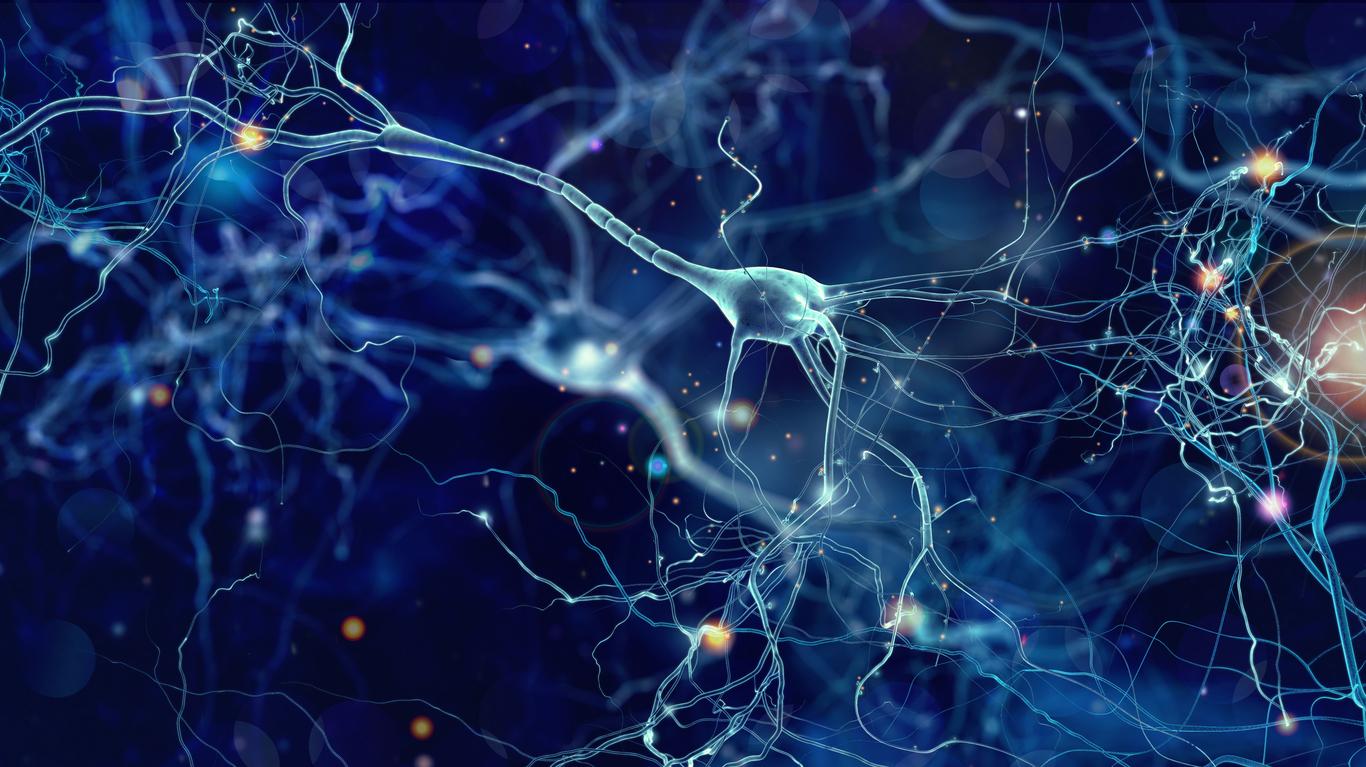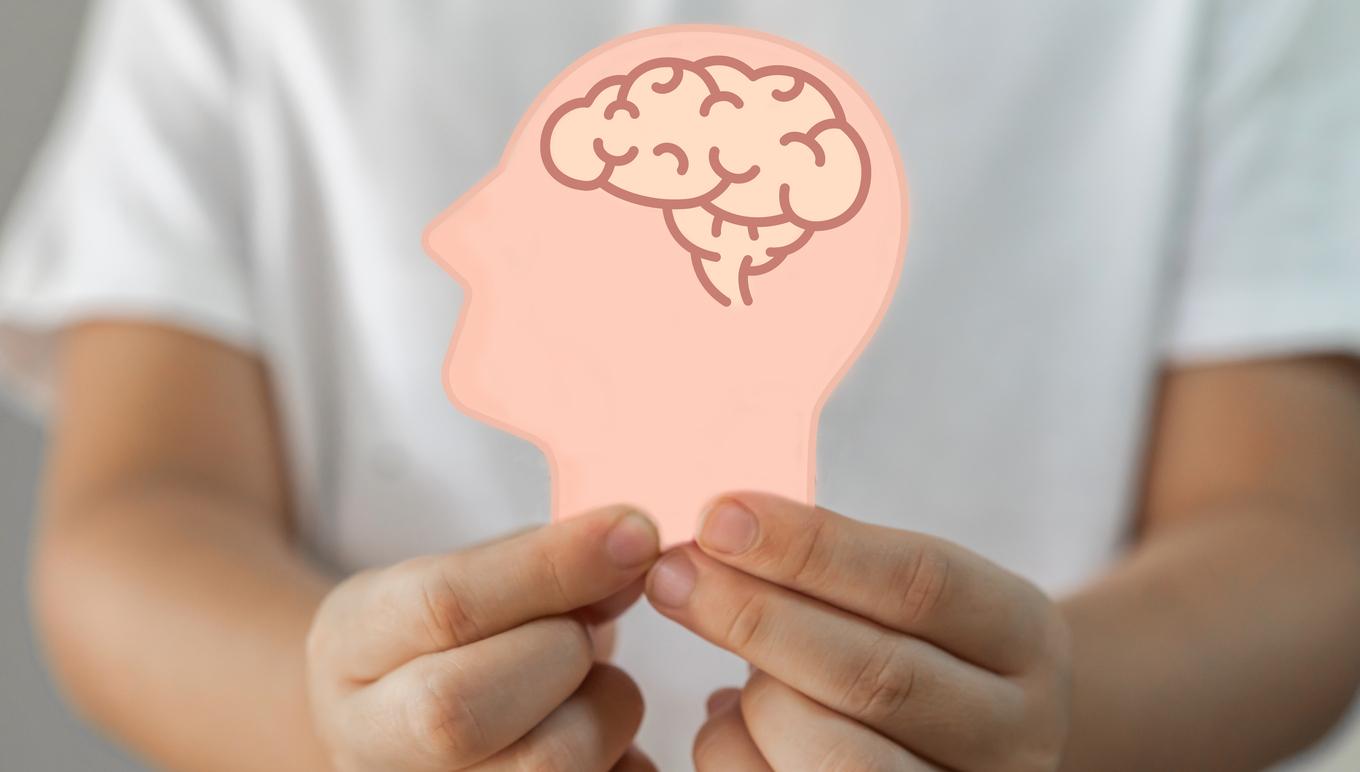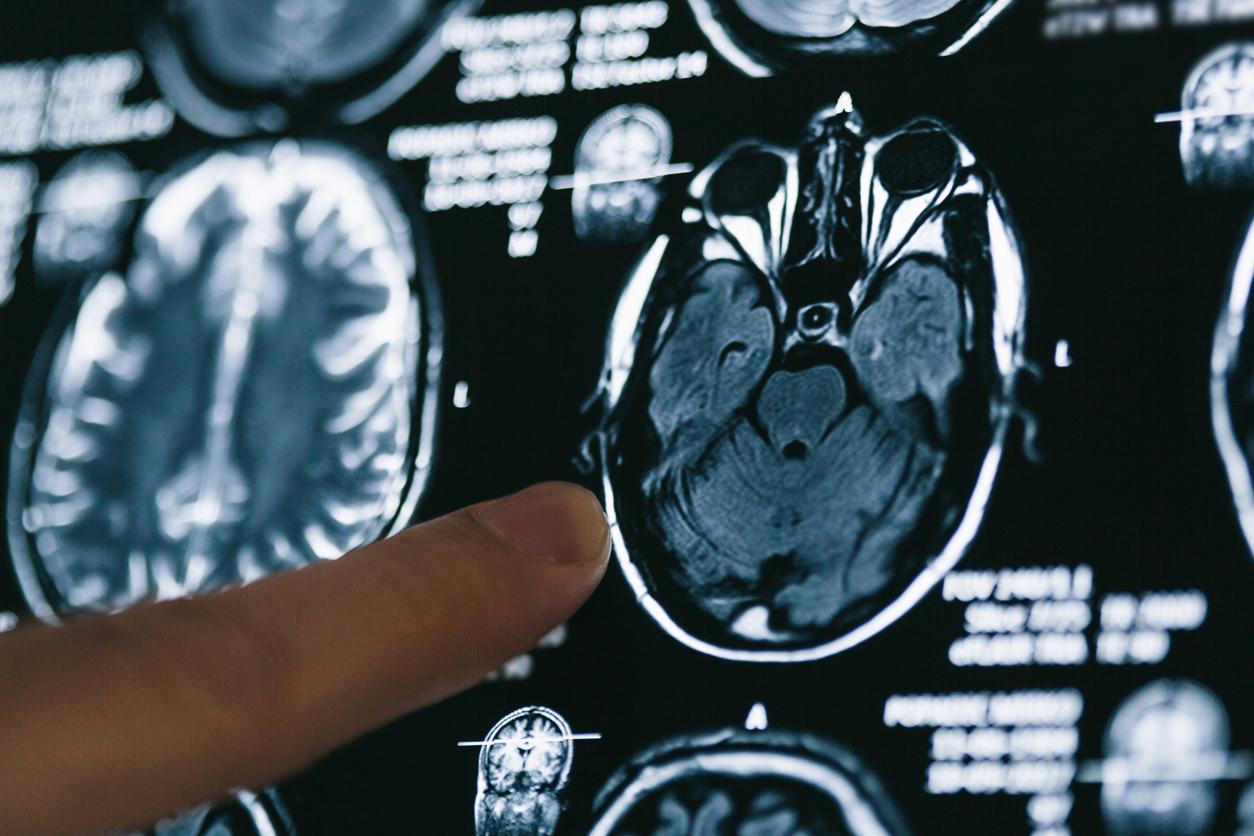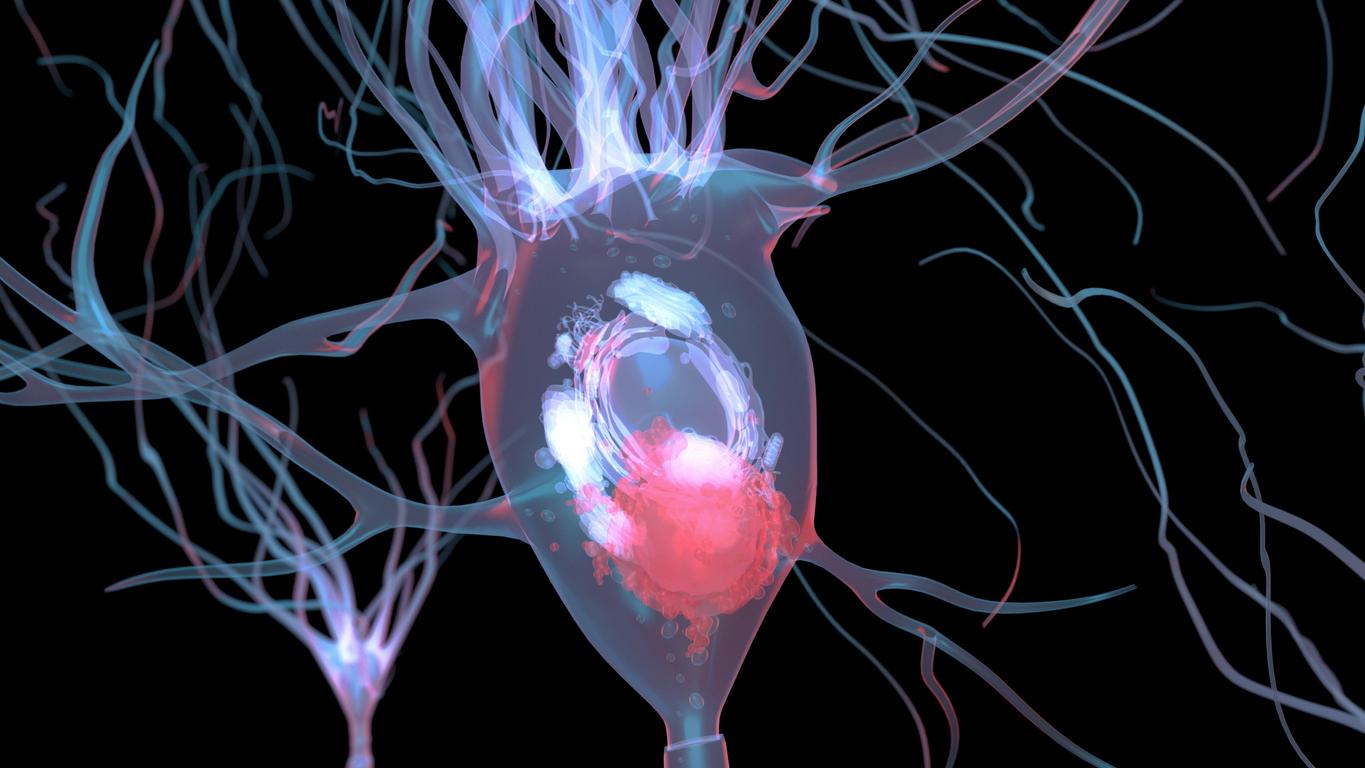American researchers have discovered that increasing the production of new neurons in mice suffering from Alzheimer’s disease makes it possible to remedy the memory problems of these rodents.
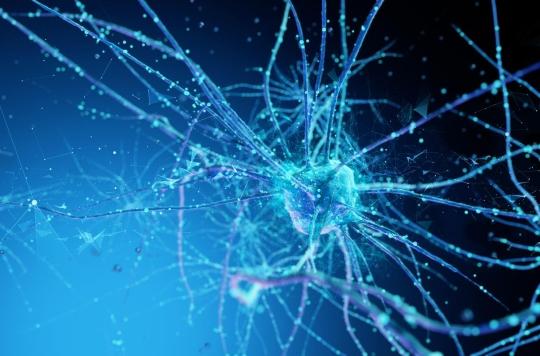
- 55.2 million people are affected by Alzheimer’s disease or a related disease in the world according to the WHO.
- Memory loss is usually the first visible disorder of Alzheimer’s.
This is an important step in understanding the mechanism, still unknown until now, which causes the progressive loss of memory, characteristic of Alzheimer’s disease.
Viable strategy
Researchers at the University of Illinois at Chicago have indeed discovered that stimulating the production of neurons could improve the memory of Alzheimer’s patients. Their study, published in the Journal of Experimental Medicinereveals that new neurons can integrate into neural circuits that store memories and restore their normal function, suggesting that stimulating neuron production may be a viable strategy for treating patients with AD. Alzheimers.
Neuroresis
New neurons are produced from stem cells by a process known as neurogenesis. Previous studies had revealed that neurogenesis is impaired both in patients with Alzheimer’s disease and in laboratory mice carrying genetic mutations linked to Alzheimer’s disease. This is particularly the case in a region of the brain called the hippocampus, which is crucial for memory acquisition and retrieval.
“Bax”
In this new study, Professor Lazarov and his colleagues stimulated neurogenesis in mice with Alzheimer’s disease by deleting “Bax”, a gene that plays a major role in the death of neuronal stem cells, which led to the maturation of a greater number of new neurons.
This multiplication of new neurons restored the animals’ performance in two different tests measuring spatial recognition and contextual memory, suggesting that increased neurogenesis may have therapeutic value in Alzheimer’s patients.
The researchers also found that stimulating neurogenesis increases the number of dendritic spines, which are structures in synapses known to be essential for memory formation.





-1740653386.jpg)





